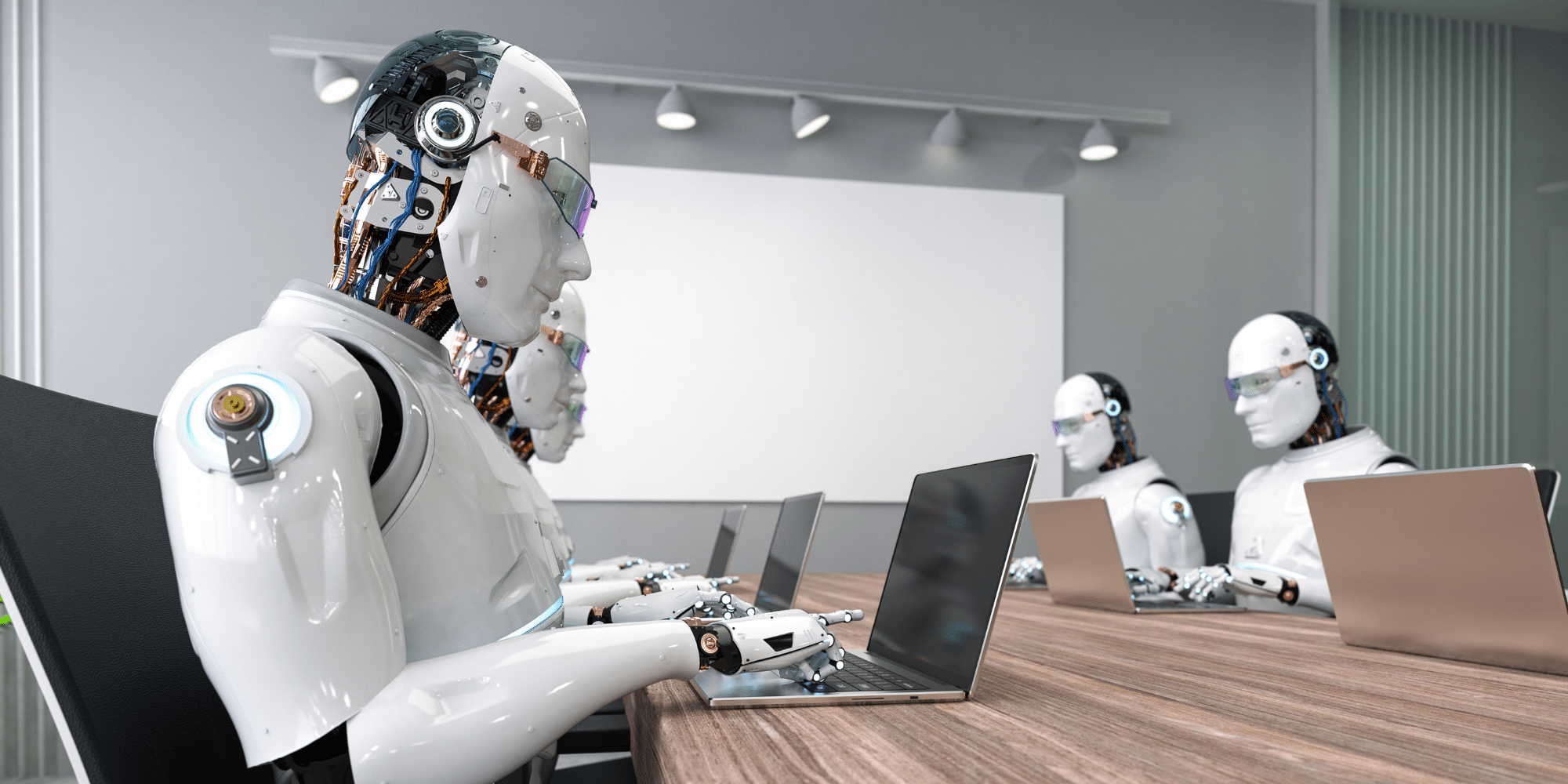The Role of AI in Recruitment

Artificial Intelligence (AI) has revolutionised industries and processes around the globe and the use of AI in recruitment and hiring has evolved more quickly than most would have imagined. AI has seen seen to help by streamlining processes, improving efficiency, and enhancing candidate experiences. However, it’s essential to understand both the capabilities and limitations of AI in this context, how AI is transforming the industry, and where human judgement remains indispensable.
Using AI to Assess CVs
AI, often integrated with Applicant Tracking Systems (ATSs), plays a crucial role in scanning and analysing CVs. These systems are adept at parsing information, identifying keywords, and matching candidates with job requirements. However, they’re not infallible.
One significant challenge faced by AI-powered CV screening is the potential for bias. In several cases, AI-driven hiring processes have inadvertently amplified biases present in the data they were trained on. For instance, they may unintentionally reject female applicants or individuals with names associated with ethnic or religious minorities. While attempts have been made to eliminate these biases, it remains a complex problem to solve.
Shine’s platform understands the limitations of AI in CV screening. It works to ensure that candidates aren’t judged solely on paper but also on their communication skills, demeanour, and cultural fit.
Assessing Candidates in Telephone Interviews
AI has made strides in assessing candidates during telephone interviews, too. It can analyse voice tone, speech patterns, and even emotional responses. However, this approach has its limitations, primarily because it lacks visual cues.
In instances where facial expressions and body language are essential, AI may struggle to provide accurate insights. Here, without the ability to see the person, AI can occasionally misinterpret responses.
Shine’s one-way video interviews and live video interviews, for example, address this limitation by providing recruiters with a comprehensive view of candidates. The inclusion of video allows for a more accurate assessment of a candidate’s demeanour and reactions, reducing the risk of misinterpretation.
AI-Generated Interview Questions
AI can efficiently generate interview questions based on job roles and candidates’ CVs. It saves time and effort, ensuring that questions align with the position’s requirements. However, it’s not a substitute for the discernment of experienced recruiters.
While AI-generated questions cover essential aspects of a candidate’s qualifications, they may miss opportunities for deeper probing. Experienced recruiters often uncover valuable insights through their intuition and experience.
Shine recognises the importance of combining AI’s efficiency with human intuition. Recruiters and hiring managers using Shine can customise questions to delve deeper into candidates’ qualifications, ensuring a more thorough evaluation.
Pros and Cons of Using AI in Recruitment and Hiring
Pros
- Efficiency: AI streamlines processes, saving time and effort in tasks like CV screening and interview scheduling.
- Data-Driven Decisions: AI analyses data to identify the best candidates, ensuring a more objective selection process.
- Cost Reduction: Automating repetitive tasks reduces recruitment costs, including the cost-per-hire.
- Improved Candidate Matching: AI matches candidates to job requirements more accurately.
- Enhanced Candidate Experience: AI-driven chatbots provide quick and personalised responses, improving engagement.
- 24/7 Availability: AI is available round the clock, facilitating global recruitment efforts.
- Consistency: AI applies consistent criteria to all candidates, reducing bias.
Cons
- Bias Risk: AI can perpetuate bias if trained on biased data, potentially disadvantaging certain groups.
- Algorithmic Errors: AI can make incorrect decisions based on incomplete or inaccurate data.
- Inability to Assess Qualitative Traits: Some soft skills, like empathy, may be challenging for AI to evaluate.
- Privacy Concerns: AI collects personal data, raising concerns about data security and misuse.
- Lack of Human Touch: AI can’t replace the emotional intelligence and empathy of human recruiters.
- Difficulty in Correcting Bias: Bias in AI systems can be challenging to eliminate once established.
In the world of recruitment and hiring, it all comes down to balance. We need to blend AI’s efficiency with human judgment to create a hiring process that’s fair and thorough. Understanding where AI excels and where we need the human touch, especially when dealing with tricky things like soft skills, is crucial. At the core, we must ensure the data we use is top-notch – accurate, complete, and free from bias. Privacy is a big deal too, so we’ve got to protect candidate info like a fortress. To keep getting better, we’ve got feedback loops, helping AI evolve while staying on the right side of the rules. But in this digital journey, personal connections still shine. And inclusivity is our compass, steering us clear of bias and guiding us to fair and diverse recruitment practices.
Conclusion
AI has significantly transformed recruitment, making processes more efficient and data-driven. However, it’s essential to recognise that AI has its limitations, particularly when assessing nuanced human qualities. Shine offers a unique advantage by combining AI-driven features with video interviews, allowing recruiters to harness the strengths of both technology and human judgement. In the ever-evolving field of recruitment, a balanced approach that leverages technology while preserving the importance of personal connections is key to success. By understanding the capabilities and limitations of AI, recruiters can make informed decisions that lead to more effective and inclusive hiring practices.
Shine’s platform bridges the gap between technology and personal connections. By facilitating video interviews, it allows recruiters to assess candidates’ personality traits, communication skills, and cultural fit during face-to-face interactions. Shine understands that a balanced approach that leverages technology while preserving the importance of personal connections is key to success in recruitment.
